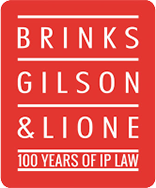As of August 3, 2019, the U.S. Patent and Trademark Office (“USPTO”) now requires that all foreign-domiciled[1] trademark applicants and registrants, as well as foreign-domiciled parties to Trademark Trial and Appeal Board (“TTAB”) proceedings, must be represented by an attorney who is licensed to practice law in the United States.
This U.S. attorney requirement applies to all foreign entities, and includes individuals and entities domiciled in Canada[2]. At present, foreign entities filing applications via the Madrid Protocol may still do so without U.S. counsel because the International Bureau’s form does not offer the option of designating a U.S. attorney. For Madrid Protocol filers, the U.S. attorney requirement will be made through the issuance of a provisional refusal after the filing of the application.
In addition to the USPTO’s institution of a U.S. attorney requirement for foreign trademark owners, U.S. licensed attorneys representing anyone before the USPTO in trademark matters must now attest they are active members in good standing of their state bar and provide the following information:
-
Attorney bar membership number;
-
Year of admission; and
-
State or states in which they are admitted.
By requiring that foreign-domiciled individuals and entities appoint U.S. licensed attorneys, and that U.S. licensed attorneys provide their bar membership information, the USPTO intends to increase compliance with U.S. trademark law and USPTO regulations, improve the accuracy of trademark submissions to the USPTO, and protect the continued integrity of the U.S. Trademark Register.
[1] The USPTO identifies a foreign domiciled entity as an (1) individual with a permanent legal residence outside the United States or its territories or (2) entity with its principal place of business (headquarters) outside the United States or its territories. See Trademark rule requires foreign applicants and registrants to have a U.S. licensed attorney, uspto.gov (August 2019).
[2] Canadian patent agents are no longer authorized to represent Canadian trademark applicants, registrants, or parties before the USPTO in trademark matters. Canadian trademark attorneys and agents, if eligible, may be recognized as additionally appointed practitioners; however, the USPTO will limit correspondence to the foreign filer’s U.S. licensed attorney. See Trademark rule requires foreign applicants and registrants to have a U.S. licensed attorney, uspto.gov (August 2019).





 />i
/>i
